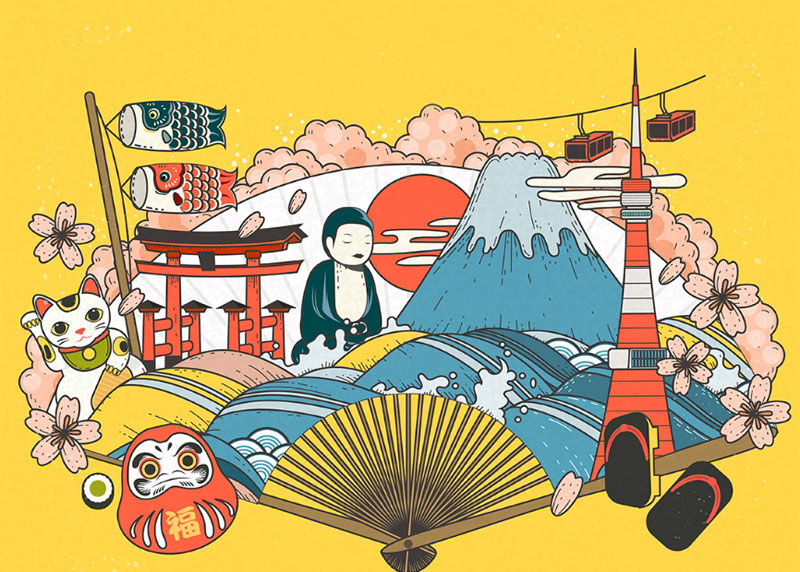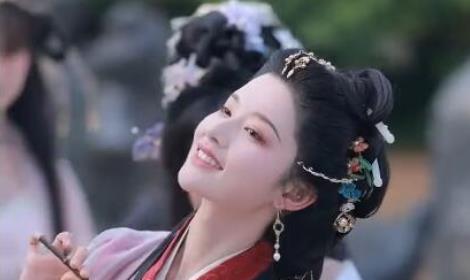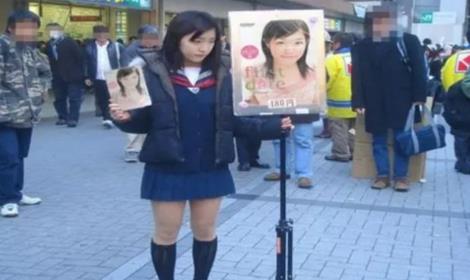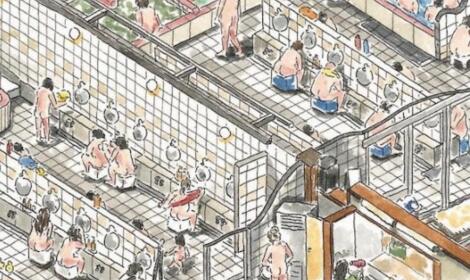QA问答:日本文化里有什么阴暗面?
正文翻译

图


图

评论翻译
Petey Lao writer, gardener, painter, ICU worker
In 2004, a freak accident occurred at Shimizu Dairoku Junior High School in Shizuoka prefecture in Japan. A strong wind toppled a soccer goal and crushed a student to death.
The school principal, Mitsuihiro Ikegami, attended the student’s funeral 4 days later. The following morning, Ikegami’s wife found him dead. He had hanged himself in the living room. He left behind a suicide note.
Japan has a long history of culturally sanctioned suicide. The suicide ritual of seppuku, performed by samurai was described as early as the 12th century. Seppuku was an honorable act to atone for mistakes, avoid capture, and express ultimate grief and sacrifice for the fallen master.
Over the subsequent centuries, similar suicide rituals spread beyond the bushido code of samurai. In World War II, kamikaze pilots sacrificed themselves by going down with the planes to destroy the Allied naval vessels. Young men reportedly lined up in droves to sign up for the kamikaze unit because their deaths and contribution to the Empire of Japan were considered noble.
【回答】作家、园丁、画家、重症监护室工作人员
2004 年,日本静冈县清水大六初中发生了一起意外事故。强风掀翻了一个足球门,将一名学生压死。
4 天后,校长池上光弘出席了这名学生的葬礼。第二天早上,池上的妻子发现他死了。他在客厅上吊自杀。他留下了一封遗书。
日本有着悠久的自杀文化历史。早在 12 世纪,就有关于武士自杀仪式 "切腹 "的描述。切腹是一种光荣的行为,可以弥补过失、避免被俘,并表达对亡故主人的终极悲痛和牺牲。
在随后的几个世纪里,类似的自杀仪式超越了武士道的范畴。在第二次世界大战中,神风特攻队飞行员牺牲自己,与飞机一起撞向盟军海军舰艇。据报道,年轻人成群结队地报名参加神风特攻队,因为他们的死亡和对大日本帝国的贡献被认为是高尚的。
A more contemporary form of culturally acceptable suicide in Japan is inseki-jisatsu or responsibility-driven suicide. People in high social positions choose to end their lives to show responsibility for their dishonor and mistakes. Inseki-jisatsu is not only culturally tolerant but also praised. In 2007, Toshikatsu Matsuoka, the Minister of Agriculture, Forestry, and Fisheries hanged himself under a cloud of suspicion about the inappropriate use of public funds. The former governor of Tokyo, Shintaro Ishihara, described him as a "true samurai" for preserving his honor.
Its historic acceptance of suicide may not be entirely to blame for the suicide epidemic in Japan. High-stress lifestyles, peer pressure, and low utilization rates of mental health services in Japan greatly contribute to the issue. All of these factors are a recipe for a perfect storm. Imagine you feel like you are in a pressure cooker, and there’s no way out. You may be misguided to think taking yourself out of the equation is the only solution, especially when the act can be seen as brave and noble by your society.
在日本,一种更符合现代文化的自杀形式是" inseki-jisatsu",即 "责任驱动自杀"。社会地位高的人选择结束自己的生命,以示对自己的耻辱和错误负责。Inseki-jisatsu不仅在文化上得到了宽容,而且还受到了赞扬。2007 年,农林水产大臣松冈利胜因被怀疑不当使用公款而自缢身亡。前东京都知事石原慎太郎称他为 "真正的武士",因为他维护了自己的名誉。在日本,高压的生活方式、同龄人的压力以及心理健康服务的低利用率在很大程度上导致了这一问题。所有这些因素构成了一场完美风暴。想象一下,你感觉自己身处高压锅中,无路可逃。你可能会被误导,认为把自己排除在外是唯一的解决办法,尤其是当这种行为被社会视为勇敢和高尚的时候。
Gudni Gudnason Founder (Company) at Aurora Entertainment Inc (2000–present)
Well perhaps not a cultural thing but in a sense it is, there is a very dark side to Japan that is super well hidden but I worked as a therapist for a few years here in Japan and learned that many women are abused by their fathers and its considered ok by society and by the mothers who usually know. So pedophilia is in a sense considered a normal thing in Japan although this might be changing in modern times. There is no law that protects the children and their right in the home and at school. Some of my clients I worked with did not think this was a problem and seemed not to have any psychological problem due to this. At the moment I am working on an amendment to the law to protect children and working with a Senator on this issue and we hope to see some results this year.
【回答】极光娱乐公司创始人(2000 年-至今)
也许这不是文化问题,但从某种意义上说确实是,日本有非常阴暗的一面,而且隐藏得很深,我在日本做了几年治疗师,了解到许多女性受到父亲的虐待,而社会和母亲通常都认为这是正常的。因此,在某种意义上,恋童癖在日本被认为是一种正常的事情,尽管这种情况在现代可能会有所改变。没有法律保护儿童及其在家庭和学校的权利。和我共事的一些客户并不认为这是一个问题,似乎也没有因此而产生任何心理问题。目前,我正在努力制定一项保护儿童的法律,并与一名参议员就此问题开展合作,我们希望今年能看到一些成果。
McFish
Japanese society has a lot of dark things about it that most foreigners are completely oblivious to.
The first is conformity to society. Beginning in grade school, Japanese children are placed into a militaristic system of education which stresses the importance of absolute obedience and success. The pressure only increases as students get older. Many of them are forced to take extremely difficult exams and many of them fail. Those that fail are forced into cramming School along with additional extra hours of studying at home. To put it in another way, a Japanese student begins school at 8:00 or 9:00 and leaves around 3:30 or later. After getting something to eat, they head over to cramming School. By the time that's done it is already 9:00. The next few hours is devoted to studying and finishing homework. It is midnight or beyond when a Japanese student is able to finally go to bed. From a western standpoint, this sort of routine is not normal for a child nor is it healthy. Beginning of the 1990s, many students, especially in junior high and high school, began going insane and committing acts of extreme violence. The phenomenon is known as Kireru (to snap). If you are someone with a developmental or physical disability you might as well not exist in Japanese society.
【回答】
日本社会有许多阴暗面,而大多数外国人对此却视而不见。
首先是顺从社会。从小学开始,日本儿童就被纳入军国主义教育体系,强调绝对服从和成功的重要性。随着学生年龄的增长,压力只会越来越大。他们中的许多人被迫参加极其困难的考试,其中很多人不及格。那些不及格的学生被迫在学校补习,同时还要在家里额外学习几个小时。换一种说法,日本学生 8 点或 9 点上学,3 点半左右或更晚放学。吃点东西后,他们就去补习班。补习结束时已经 9 点了。接下来的几个小时就是学习和完成作业。到了午夜或更晚,日本学生才能上床睡觉。从西方的角度来看,这种作息时间对孩子来说既不正常,也不健康。从 1990 年代开始,许多学生,尤其是初中和高中生,开始变得疯狂并实施极端暴力行为。这种现象被称为 "Kireru"(崩溃)。如果你是一个有发育障碍或身体残疾的人,那么你在日本社会中还不如不要存在为好。
Second is Japan's s deadly work ethic. After the second World War, the Japanese government repurposed its militarist system for capitalism. With help from America, Japan experienced a so-called economic miracle which would last until the early 1990s. There was a time when Japan was the world's greatest manufacturer. An entire generation of Japanese were raised with the belief that inhuman levels of study and work would always lead to success. During the 1980s at the height of the economic boom, the Japanese believed they could switch from manufacturing to finance with an even brighter future. On paper at least, it appeared as though Japan's economy could only go up. In reality a massive economic bubble, one of the largest in history, continue to grow until it finally burst in 1991. Within the next 4 years the Japanese economy slipped further and further into an endless recession from which it has never recovered.
其次是日本致命的职业道德。第二次世界大战后,日本政府将其军国主义制度转变为资本主义制度。在美国的帮助下,日本经历了所谓的经济奇迹,这一奇迹一直持续到1990年代初。日本曾是世界上最伟大的制造商。整整一代日本人从小就相信,非人的学习和工作水平总会带来成功。1980 年代,在经济繁荣的鼎盛时期,日本人相信他们可以从制造业转向金融业,从而获得更加光明的未来。至少从表面上看,日本经济似乎只会向上发展。但实际上,一个历史上最大的经济泡沫持续增长,直到 1991 年终于破灭。在接下来的 4 年里,日本经济越陷越深,陷入了无休止的衰退,至今仍未恢复过来。
A stagnant economy and rapidly changing dynamics in Japanese businesses (guaranteed lifetime employment), did not affect the dangerous work ethic one bit. Even as millions of Japanese were losing their jobs and businesses, the government continued to encourage the population to believe in the old Japanese way. Japanese salarymen didn't work less hours, they worked even longer and harder then ever before. Karoshi (death by overwork), a phenomenon that it existed since the 1980s, became more common. Failure in business is seen as a personal failure. In Japan, businessmen, both white and blue collared, can't just say they are sorry if they make a mistake, normally they have to kill themselves, or at least resign from their job in shame. For many others, the shame was too much and suicide became the only means of deliverance.
停滞的经济和快速变化的日本企业动态(保证终身雇佣)丝毫没有影响危险的职业道德。即使数以百万计的日本人失去了工作和生意,政府仍继续鼓励人们相信日本的老办法。日本工薪族的工作时间不仅没有减少,反而比以前工作得更长、更辛苦。过劳死(Karoshi)现象自 1980 年代以来就一直存在,现在变得更加普遍。生意失败被视为个人失败。在日本,商人,无论是白领还是蓝领,如果犯了错误,不能只说对不起,通常他们必须自杀,或者至少羞愧地辞职。对于其他许多人来说,耻辱感实在太强烈了,自杀成了唯一的解脱方式。
Younger generation of Japanese found another way to deal with the unbearable pressures of Japanese society. They withdrew from society as a whole. Hikikomori, or complete social isolation, became a means of throwing off societal pressures but at the cost of one's own health and personal finances. Many of these Hikikomori end up dying alone and forgotten. Homeless in their own home.
Finally, there is the declining birth rate. The peak of Japan's population growth after World War II was between 1947 and 1949. After the 1980s, the population began its gradual slide downward. The causes were and still are economic decline, lack of government support for mothers and a new generation of young Japanese who did not want to commit to marriage. This is especially true for women. Throughout much of Japanese history, the woman was nothing but an obxt to be owned. Few opportunities outside homemaking existed for Japanese women. Young Japanese men feel they cannot financially provide for a wife and child, and therefore reject the entire idea of marriage.
In conclusion, Japanese culture has a lot more darkness than it does light. Even anime, which portrays Japan as a improbable cartoonish fantasyland, also serves as a statement of fact. That fact is fantasy Japan is more fun than the real Japan.
年轻一代日本人找到了另一种方式来应对日本社会难以承受的压力。他们退出整个社会。成为茧居族,即完全与社会隔绝,成为一种摆脱社会压力的方式,但代价是个人的健康和经济。许多茧居族最终孤独地死去,被人遗忘。在自己家中无家可归。
最后是出生率下降。二战后,1947 年至 1949 年是日本人口增长的高峰期。1980年代后,人口开始逐渐下降。其原因包括经济衰退、政府缺乏对母亲的支持,以及新一代日本年轻人不愿结婚。女性的情况尤其如此。在日本历史的大部分时间里,女性只是一种被拥有的物品。日本妇女很少有机会从事家庭以外的工作。年轻的日本男性认为他们在经济上无法养活妻子和孩子,因此拒绝了结婚的所有想法。
总之,日本文化的阴暗面比光明面多得多。即使是把日本描绘成一个不可思议的卡通幻想乐园的动漫,也是在陈述一个事实。即幻想中的日本比真实的日本更有趣。
Reyhan Ronin An avid fan of global culture
One difficult part of Japanese society is the pressure to fit in. These social norms are much more detailed than in pretty much any other country. The Japanese give many interactions the rigid formality of a visit by the queen.
A simple example. A process like exchanging a business card (名刺 meishi) requires the knowledge of many different rules unless you want to look like a buffoon.
Mix up any of these rules, and you look uncultivated and amateurish. And this is only a very small example of rigid Japanese social norms. Even Japanese who have lived abroad for a few years often have difficulty fitting back in. For example, one Japanese female a british guy knows, working for a Japanese company abroad needed one week merely to figure out what to wear to the office when visiting the Japanese head office. Even with a standard business suit, there are many variations that can make you the oddball-out.
【回答】全球文化的狂热爱好者
日本社会的一个难点是融入社会的压力。这些社会规范比其他任何国家都要详细得多。日本人在许多交往中都要像女王来访一样拘谨正式。
举个简单的例子。像交换名片这样的过程需要了解许多不同的规则,除非你想看起来像个小丑。
混淆了这些规则中的任何一条,你就会显得没有教养和不专业。而这只是日本僵化的社会规范中很小的一个例子。即使是在国外生活过几年的日本人,也常常难以重新融入社会。例如,有个英国人认识一个日本女性,在国外一家日本公司工作,仅仅是为了访问日本总部时,就花了一周时间才想好穿什么去办公室。即使是标准的商务套装,也会有很多变化让你看起来很古怪。
In 2004, a freak accident occurred at Shimizu Dairoku Junior High School in Shizuoka prefecture in Japan. A strong wind toppled a soccer goal and crushed a student to death.
The school principal, Mitsuihiro Ikegami, attended the student’s funeral 4 days later. The following morning, Ikegami’s wife found him dead. He had hanged himself in the living room. He left behind a suicide note.
Japan has a long history of culturally sanctioned suicide. The suicide ritual of seppuku, performed by samurai was described as early as the 12th century. Seppuku was an honorable act to atone for mistakes, avoid capture, and express ultimate grief and sacrifice for the fallen master.
Over the subsequent centuries, similar suicide rituals spread beyond the bushido code of samurai. In World War II, kamikaze pilots sacrificed themselves by going down with the planes to destroy the Allied naval vessels. Young men reportedly lined up in droves to sign up for the kamikaze unit because their deaths and contribution to the Empire of Japan were considered noble.
【回答】作家、园丁、画家、重症监护室工作人员
2004 年,日本静冈县清水大六初中发生了一起意外事故。强风掀翻了一个足球门,将一名学生压死。
4 天后,校长池上光弘出席了这名学生的葬礼。第二天早上,池上的妻子发现他死了。他在客厅上吊自杀。他留下了一封遗书。
日本有着悠久的自杀文化历史。早在 12 世纪,就有关于武士自杀仪式 "切腹 "的描述。切腹是一种光荣的行为,可以弥补过失、避免被俘,并表达对亡故主人的终极悲痛和牺牲。
在随后的几个世纪里,类似的自杀仪式超越了武士道的范畴。在第二次世界大战中,神风特攻队飞行员牺牲自己,与飞机一起撞向盟军海军舰艇。据报道,年轻人成群结队地报名参加神风特攻队,因为他们的死亡和对大日本帝国的贡献被认为是高尚的。
A more contemporary form of culturally acceptable suicide in Japan is inseki-jisatsu or responsibility-driven suicide. People in high social positions choose to end their lives to show responsibility for their dishonor and mistakes. Inseki-jisatsu is not only culturally tolerant but also praised. In 2007, Toshikatsu Matsuoka, the Minister of Agriculture, Forestry, and Fisheries hanged himself under a cloud of suspicion about the inappropriate use of public funds. The former governor of Tokyo, Shintaro Ishihara, described him as a "true samurai" for preserving his honor.
Its historic acceptance of suicide may not be entirely to blame for the suicide epidemic in Japan. High-stress lifestyles, peer pressure, and low utilization rates of mental health services in Japan greatly contribute to the issue. All of these factors are a recipe for a perfect storm. Imagine you feel like you are in a pressure cooker, and there’s no way out. You may be misguided to think taking yourself out of the equation is the only solution, especially when the act can be seen as brave and noble by your society.
在日本,一种更符合现代文化的自杀形式是" inseki-jisatsu",即 "责任驱动自杀"。社会地位高的人选择结束自己的生命,以示对自己的耻辱和错误负责。Inseki-jisatsu不仅在文化上得到了宽容,而且还受到了赞扬。2007 年,农林水产大臣松冈利胜因被怀疑不当使用公款而自缢身亡。前东京都知事石原慎太郎称他为 "真正的武士",因为他维护了自己的名誉。在日本,高压的生活方式、同龄人的压力以及心理健康服务的低利用率在很大程度上导致了这一问题。所有这些因素构成了一场完美风暴。想象一下,你感觉自己身处高压锅中,无路可逃。你可能会被误导,认为把自己排除在外是唯一的解决办法,尤其是当这种行为被社会视为勇敢和高尚的时候。
Gudni Gudnason Founder (Company) at Aurora Entertainment Inc (2000–present)
Well perhaps not a cultural thing but in a sense it is, there is a very dark side to Japan that is super well hidden but I worked as a therapist for a few years here in Japan and learned that many women are abused by their fathers and its considered ok by society and by the mothers who usually know. So pedophilia is in a sense considered a normal thing in Japan although this might be changing in modern times. There is no law that protects the children and their right in the home and at school. Some of my clients I worked with did not think this was a problem and seemed not to have any psychological problem due to this. At the moment I am working on an amendment to the law to protect children and working with a Senator on this issue and we hope to see some results this year.
【回答】极光娱乐公司创始人(2000 年-至今)
也许这不是文化问题,但从某种意义上说确实是,日本有非常阴暗的一面,而且隐藏得很深,我在日本做了几年治疗师,了解到许多女性受到父亲的虐待,而社会和母亲通常都认为这是正常的。因此,在某种意义上,恋童癖在日本被认为是一种正常的事情,尽管这种情况在现代可能会有所改变。没有法律保护儿童及其在家庭和学校的权利。和我共事的一些客户并不认为这是一个问题,似乎也没有因此而产生任何心理问题。目前,我正在努力制定一项保护儿童的法律,并与一名参议员就此问题开展合作,我们希望今年能看到一些成果。
McFish
Japanese society has a lot of dark things about it that most foreigners are completely oblivious to.
The first is conformity to society. Beginning in grade school, Japanese children are placed into a militaristic system of education which stresses the importance of absolute obedience and success. The pressure only increases as students get older. Many of them are forced to take extremely difficult exams and many of them fail. Those that fail are forced into cramming School along with additional extra hours of studying at home. To put it in another way, a Japanese student begins school at 8:00 or 9:00 and leaves around 3:30 or later. After getting something to eat, they head over to cramming School. By the time that's done it is already 9:00. The next few hours is devoted to studying and finishing homework. It is midnight or beyond when a Japanese student is able to finally go to bed. From a western standpoint, this sort of routine is not normal for a child nor is it healthy. Beginning of the 1990s, many students, especially in junior high and high school, began going insane and committing acts of extreme violence. The phenomenon is known as Kireru (to snap). If you are someone with a developmental or physical disability you might as well not exist in Japanese society.
【回答】
日本社会有许多阴暗面,而大多数外国人对此却视而不见。
首先是顺从社会。从小学开始,日本儿童就被纳入军国主义教育体系,强调绝对服从和成功的重要性。随着学生年龄的增长,压力只会越来越大。他们中的许多人被迫参加极其困难的考试,其中很多人不及格。那些不及格的学生被迫在学校补习,同时还要在家里额外学习几个小时。换一种说法,日本学生 8 点或 9 点上学,3 点半左右或更晚放学。吃点东西后,他们就去补习班。补习结束时已经 9 点了。接下来的几个小时就是学习和完成作业。到了午夜或更晚,日本学生才能上床睡觉。从西方的角度来看,这种作息时间对孩子来说既不正常,也不健康。从 1990 年代开始,许多学生,尤其是初中和高中生,开始变得疯狂并实施极端暴力行为。这种现象被称为 "Kireru"(崩溃)。如果你是一个有发育障碍或身体残疾的人,那么你在日本社会中还不如不要存在为好。
Second is Japan's s deadly work ethic. After the second World War, the Japanese government repurposed its militarist system for capitalism. With help from America, Japan experienced a so-called economic miracle which would last until the early 1990s. There was a time when Japan was the world's greatest manufacturer. An entire generation of Japanese were raised with the belief that inhuman levels of study and work would always lead to success. During the 1980s at the height of the economic boom, the Japanese believed they could switch from manufacturing to finance with an even brighter future. On paper at least, it appeared as though Japan's economy could only go up. In reality a massive economic bubble, one of the largest in history, continue to grow until it finally burst in 1991. Within the next 4 years the Japanese economy slipped further and further into an endless recession from which it has never recovered.
其次是日本致命的职业道德。第二次世界大战后,日本政府将其军国主义制度转变为资本主义制度。在美国的帮助下,日本经历了所谓的经济奇迹,这一奇迹一直持续到1990年代初。日本曾是世界上最伟大的制造商。整整一代日本人从小就相信,非人的学习和工作水平总会带来成功。1980 年代,在经济繁荣的鼎盛时期,日本人相信他们可以从制造业转向金融业,从而获得更加光明的未来。至少从表面上看,日本经济似乎只会向上发展。但实际上,一个历史上最大的经济泡沫持续增长,直到 1991 年终于破灭。在接下来的 4 年里,日本经济越陷越深,陷入了无休止的衰退,至今仍未恢复过来。
A stagnant economy and rapidly changing dynamics in Japanese businesses (guaranteed lifetime employment), did not affect the dangerous work ethic one bit. Even as millions of Japanese were losing their jobs and businesses, the government continued to encourage the population to believe in the old Japanese way. Japanese salarymen didn't work less hours, they worked even longer and harder then ever before. Karoshi (death by overwork), a phenomenon that it existed since the 1980s, became more common. Failure in business is seen as a personal failure. In Japan, businessmen, both white and blue collared, can't just say they are sorry if they make a mistake, normally they have to kill themselves, or at least resign from their job in shame. For many others, the shame was too much and suicide became the only means of deliverance.
停滞的经济和快速变化的日本企业动态(保证终身雇佣)丝毫没有影响危险的职业道德。即使数以百万计的日本人失去了工作和生意,政府仍继续鼓励人们相信日本的老办法。日本工薪族的工作时间不仅没有减少,反而比以前工作得更长、更辛苦。过劳死(Karoshi)现象自 1980 年代以来就一直存在,现在变得更加普遍。生意失败被视为个人失败。在日本,商人,无论是白领还是蓝领,如果犯了错误,不能只说对不起,通常他们必须自杀,或者至少羞愧地辞职。对于其他许多人来说,耻辱感实在太强烈了,自杀成了唯一的解脱方式。
Younger generation of Japanese found another way to deal with the unbearable pressures of Japanese society. They withdrew from society as a whole. Hikikomori, or complete social isolation, became a means of throwing off societal pressures but at the cost of one's own health and personal finances. Many of these Hikikomori end up dying alone and forgotten. Homeless in their own home.
Finally, there is the declining birth rate. The peak of Japan's population growth after World War II was between 1947 and 1949. After the 1980s, the population began its gradual slide downward. The causes were and still are economic decline, lack of government support for mothers and a new generation of young Japanese who did not want to commit to marriage. This is especially true for women. Throughout much of Japanese history, the woman was nothing but an obxt to be owned. Few opportunities outside homemaking existed for Japanese women. Young Japanese men feel they cannot financially provide for a wife and child, and therefore reject the entire idea of marriage.
In conclusion, Japanese culture has a lot more darkness than it does light. Even anime, which portrays Japan as a improbable cartoonish fantasyland, also serves as a statement of fact. That fact is fantasy Japan is more fun than the real Japan.
年轻一代日本人找到了另一种方式来应对日本社会难以承受的压力。他们退出整个社会。成为茧居族,即完全与社会隔绝,成为一种摆脱社会压力的方式,但代价是个人的健康和经济。许多茧居族最终孤独地死去,被人遗忘。在自己家中无家可归。
最后是出生率下降。二战后,1947 年至 1949 年是日本人口增长的高峰期。1980年代后,人口开始逐渐下降。其原因包括经济衰退、政府缺乏对母亲的支持,以及新一代日本年轻人不愿结婚。女性的情况尤其如此。在日本历史的大部分时间里,女性只是一种被拥有的物品。日本妇女很少有机会从事家庭以外的工作。年轻的日本男性认为他们在经济上无法养活妻子和孩子,因此拒绝了结婚的所有想法。
总之,日本文化的阴暗面比光明面多得多。即使是把日本描绘成一个不可思议的卡通幻想乐园的动漫,也是在陈述一个事实。即幻想中的日本比真实的日本更有趣。
Reyhan Ronin An avid fan of global culture
One difficult part of Japanese society is the pressure to fit in. These social norms are much more detailed than in pretty much any other country. The Japanese give many interactions the rigid formality of a visit by the queen.
A simple example. A process like exchanging a business card (名刺 meishi) requires the knowledge of many different rules unless you want to look like a buffoon.
Mix up any of these rules, and you look uncultivated and amateurish. And this is only a very small example of rigid Japanese social norms. Even Japanese who have lived abroad for a few years often have difficulty fitting back in. For example, one Japanese female a british guy knows, working for a Japanese company abroad needed one week merely to figure out what to wear to the office when visiting the Japanese head office. Even with a standard business suit, there are many variations that can make you the oddball-out.
【回答】全球文化的狂热爱好者
日本社会的一个难点是融入社会的压力。这些社会规范比其他任何国家都要详细得多。日本人在许多交往中都要像女王来访一样拘谨正式。
举个简单的例子。像交换名片这样的过程需要了解许多不同的规则,除非你想看起来像个小丑。
混淆了这些规则中的任何一条,你就会显得没有教养和不专业。而这只是日本僵化的社会规范中很小的一个例子。即使是在国外生活过几年的日本人,也常常难以重新融入社会。例如,有个英国人认识一个日本女性,在国外一家日本公司工作,仅仅是为了访问日本总部时,就花了一周时间才想好穿什么去办公室。即使是标准的商务套装,也会有很多变化让你看起来很古怪。








